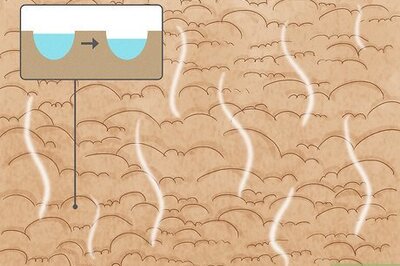
views
To address the widespread misinformation about sex, News18.com is running this weekly sex column, titled ‘Let’s Talk Sex’. We hope to initiate conversations about sex through this column and address sexual health issues with scientific insight and nuance.
The column is written by sexologist Prof (Dr) Saransh Jain. In this article, Dr Jain will explain all about penile fracture, its causes, symptoms and available treatment options.
If you’ve ever experienced a popping or cracking sound while your penis is erect, it’s important to seek medical help right away. This could be a sign of a penile fracture, which is a serious injury. A penis fracture differs from other fractures in the body because the penis has no bones. However, you can ‘break’ your penis if it’s bent or hit while it’s erect.
What is a penile fracture?
During an erection, your penis has two columns or cylinders that are like sponges that fill with blood and make the penis hard. One column is a corpus cavernosum and two are called the corpora cavernosa. These columns are covered by a protective layer called the tunica albuginea. The tunica albuginea is the rubbery sheath of tissue below the skin that allows the penis to increase in width and length to produce a firm erection. Your penis is considered ‘broken’ or ‘fractured’ when the tunica abulginea is torn open. Sometimes the erectile tissue beneath the tunica albuginea also ruptures.
What causes a penile fracture?
Penile fracture happens when sudden trauma or bending of the penis breaks the tunica albuginea. Penile fractures most often occur during vigorous intercourse. It is generally believed that the most common position where these fractures occur is in the woman on top position. However, penile fractures can also occur during intercourse in other positions.
In addition, penile fractures can occur during vigorous manipulation of the penis, such as forceful masturbation. They can also be caused by trauma, including from aggressive bending of the erect penis or by rolling over onto the erect penis.
At the time a penile fracture occurs, there is usually a cracking or audible “popping” sound. It is sometimes described as similar to breaking glass. Then the penis quickly loses its rigidity. This is quickly followed by swelling and bruising, resulting in the classic eggplant deformity. Other injuries to the arteries and veins of the penis can lead to similar symptoms.
What are the symptoms of penile fracture?
If you take a sharp blow to the genitals, your penis may be sore or bruised. Penile fracture is a more severe injury. The following symptoms are red flags for possible fracture:
- When it happens, there is a popping or cracking sound.
- Severe pain that may or may not last.
- Immediate erection loss.
- Bruising and swelling caused by blood pooling beneath the skin.
- Blood in the urine or at the tip of the penis
How is penile fracture treated?
Penile fractures usually require surgery. The surgeon will use stitches to close the tear in the tunica albuginea and corpus cavernosum. The main goals of treatment are to restore or maintain your ability to have erections and preserve urinary function.
You may be hospitalised for a few days following penile fracture surgery. After surgery, the fracture will take months to fully heal. Follow-up visits will be scheduled to ensure that the wound is healing properly and that you are not having urination problems. You must undergo additional testing and possibly imaging studies to:
- assess blood flow
- check on the progress of healing
- examine the veins and arteries in the penis
You shouldn’t have intercourse for at least a month after surgery. Ask your doctor what you can do to assist in healing the injury. Your counsellor will talk with you about when you can go back to work and when you can return to sexual activity.
What are the risk factors & how to prevent it?
Although penis fracture can result from injury during any position in sexual intercourse, certain practices increase the odds. In heterosexual men, the woman-on-top position increases your risk. When the penis is momentarily blocked at the entrance to the vagina, the woman’s full weight can forcefully bend the erection. The woman may also rock too far forward or backward, bending the shaft of the penis. The rear-entry position is also associated with penile injuries.
To avoid penile injuries, make sure there is adequate lubrication during intercourse and be careful during vigorous or “hard” penetrative intercourse. Also, avoid trying to force your erect penis into tight underwear or rolling over on an erection in bed. Any sudden force exerted on an erect penis could cause injury, major or minor.
Conclusion
Although it’s a pretty rare injury, a penile fracture can be a scary thing. If you’re unlucky enough to suffer from one, though, don’t worry there is treatment available and you can recover fully.
Penile fracture is a medical emergency. If you think you’ve fractured your penis, go to your local emergency services. Results are significantly better when treated within 24 hours of the injury. There’s no need to be embarrassed and you shouldn’t hesitate to get help. Treatment is available and you can make a full recovery. After surgery to repair the penis, most men regain the ability to have erections and report overall satisfaction with their sex life.
Read all the Latest Lifestyle News here




















Comments
0 comment